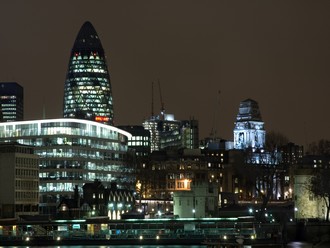Prepare for the worst!
Extreme weather conditions, an increase in energy demand and an aging power infrastructure mean that UK businesses should be prepared for a less reliable power supply, harmful spikes and potential blackouts, warns Alan Luscombe, sales director at Uninterruptible Power Supplies.

Today, everyone expects a reliable supply of power. However, evidence and expert opinion suggest that there is cause for alarm about future supplies.
In May 2009, many homes and businesses in London, East Anglia, Cheshire and Merseyside experienced power cuts after a fault caused an unplanned shutdown at the Sizewell B nuclear power plant in Suffolk. The National Grid had to deactivate local stations, creating a supply shortfall of about 400 megawatts - almost 1% of national demand. ‘When demand is greater than generation, the system fails,’ the National Grid noted. A simple truth that should drive all businesses to review their power protection needs.
The UK's largest independent energy consultant, McKinnon and Clarke, has called on the government to build new power stations or face further blackouts. Further, the Institution of Civil Engineers has been warning for many years that without sustained investment, Britain risks a staggering 80% energy shortfall by 2020.
It never rains…
Recent incidents of flooding has also caused power supply problems to businesses. It is not just the risk of flooding onsite but also at local electricity sub-stations that business property owners need to consider in their business continuity planning. Even if businesses or their data centres are not directly affected by the force of natural phenomena such as flooding and storms, they may suffer from the consequent rise in power demand or reduction in availability if the national grid is in some way compromised. In the event of a power cut, uninterruptible power supply (UPS) batteries can be sized to cover loss of electricity for, potentially, a few hours. Beyond that, a diesel generator is needed.
While high rainfall and storms are the most common threat, other natural phenomena also present risks. High temperatures, coupled with summertime peak power demand, for example.
In July 2006, parts of London lost power due to high energy requirements for air conditioning. The overall efficiency of UPS systems has a significant effect on the size and operating cost of air conditioning plant. The high efficiency figures (up to 97%) quoted for modern on-line UPS may mean that no additional air conditioning is required.
With IT energy consumption up 400% per server rack since 2003, data centre managers are turning to a new generation of UPS systems to meet demands for high power availability, maximum efficiency and reduced emissions. The drive for energy efficiency has increased market demand for systems with higher power density, and ‘hot swappable’ rack-mount modules that can be inserted or removed to continually match capacity to respective critical loads.
Another issue is that of power surges or electrical transients. Short duration, high energy voltage pulses are typically caused by fault clearing on the electricity network and by lightening strikes on distribution lines and utility equipment. Although this may seem unlikely in a built-up city, it is important to note that voltage spikes can also occur when the power returns after an outage.
UPS equipment has an inherent ability to deal with low energy voltage transients, by filtering mains power and ensuring quality of supply. The problem arises in the situation of a high energy surge, with the magnitude to overwhelm the UPS system. In this situation the UPS is likely to continue to protect all electronic equipment, but potentially at the risk of damaging the UPS itself. The installation of a surge protector upstream from the UPS system will ensure all electronic and UPS equipment is protected at all times.
Concerns about the reliability of the mains supply are compounded by the shift away from coal, gas and nuclear power as we seek alternative energy sources. Rising demand conflicts with the shortfall in supply, and the UK’s aging infrastructure is susceptible to extreme weather conditions. Pressure to shrink carbon footprints, plus increasing energy costs and an economic slowdown, make these issues all the more pressing.
Businesses have a tough task specifying systems today that will cater for energy needs over the next ten to 20 years. Modern UPS technology is helping businesses address these issue by providing new ways to reduce power consumption and provide flexible, reliable protection for business critical systems.
Contact Details and Archive...